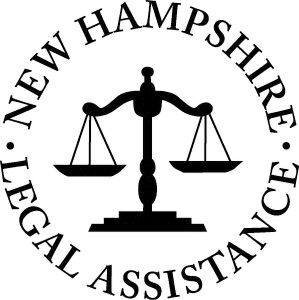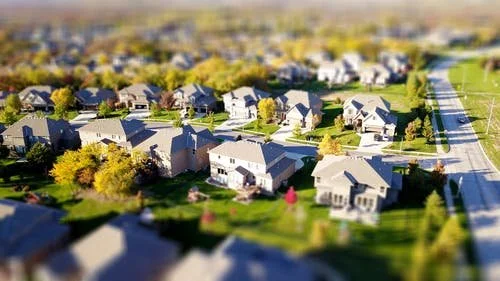Accessibility in Home Construction and Housing Developments
The federal Fair Housing Act (FHA) prohibits discrimination in housing on the basis of race, color, religion, sex, national origin, familial status, and disability. Failing to design and construct multifamily dwellings, such as condos or apartment buildings, with certain accessible design features is one type of disability discrimination prohibited by the FHA.
Different kinds of housing have different requirements for accessibility. Here are some things to look out for and when to contact the NH Legal Assistance Fair Housing Project if you see a suspected violation.
What the Fair Housing Act Requires
Over the years, housing design and policy have evolved to become more mindful of the needs of people with disabilities. Specific accessibility features vary depending on local regulations, but there are some standards that are required for accessibility throughout the U.S. for housing covered by the FHA’s design and construction requirements. As outlined in a joint statement by the U.S. Department of Housing and Urban Development (HUD) and the U.S. Department of Justice (DOJ), these are:
The public and common use areas must be readily accessible to and usable by people with disabilities.
All doors must be designed to allow passage into and within the covered dwellings and must be sufficiently wide to allow passage by people with disabilities, including those who use wheelchairs.
All premises within covered dwellings must have:
accessible routes into and through the dwelling unit.
light switches, electrical outlets, thermostats, and other environmental controls in accessible locations.
Reinforcements in bathroom walls to allow for the installation of grab bars.
Usable kitchens and bathrooms that allow an individual using a wheelchair to maneuver and use the space.
The aim of these requirements is to ensure that people with disabilities can use and enjoy their home without barriers and there are no rooms within their apartment or common areas that they can’t access because of their disability.
Housing Covered Under Design and Construction Requirements of the FHA
The Fair Housing Act requires certain dwellings be readily accessible to and usable by persons with disabilities. This applies to all “covered multifamily dwellings” designed and constructed for first occupancy after March 13, 1991. When a building has four or more dwelling units and at least one elevator, all units, public areas, and common areas must adhere to the Act’s design and construction requirements. In buildings with four or more units and no elevator, these requirements apply to all ground floor units, public areas, and common areas.
The term “covered multifamily dwelling” can refer to many different types of residential buildings and facilities, including for example:
Condominiums
Cooperatives
Apartment buildings
Assisted living facilities
Nursing homes
Public housing developments
Transitional housing
Shelters designed as a residence for homeless persons
Dormitories
Hospices
Extended stay or residential hotels
Additions and Updates to Old Buildings
Here in New Hampshire, many homes were built before March 13, 1991. Alterations, rehabilitation, or repair of residential buildings built for first occupancy before this date are not covered by the FHA’s design and construction requirements.
However, if an older building is completely rebuilt, such as after a fire or flooding, or certain additions are made to an older building, the requirements of the FHA would apply. For example, when four or more units are built as an addition to a building that was built before March 13, 1991, then the added units must comply with the FHA’s design and construction requirements. If new public and common use spaces are added with these units, those spaces must be accessible too.
Suspect a Violation?
Ensuring access to and enjoyment of housing is a fundamental goal of the Fair Housing Act. If you are a person with disabilities and your apartment does not meet your accessibility needs, contact the NH Legal Assistance Fair Housing Project at 1-800-921-1115. We may be able to help.

